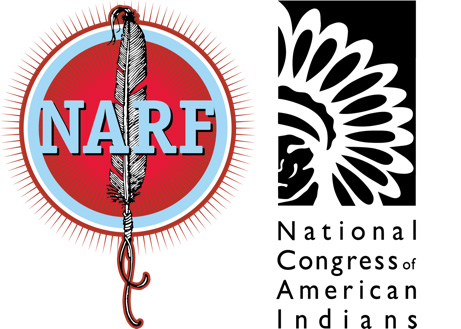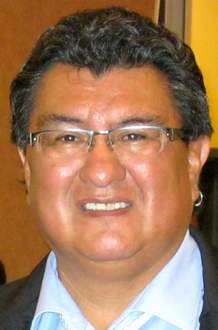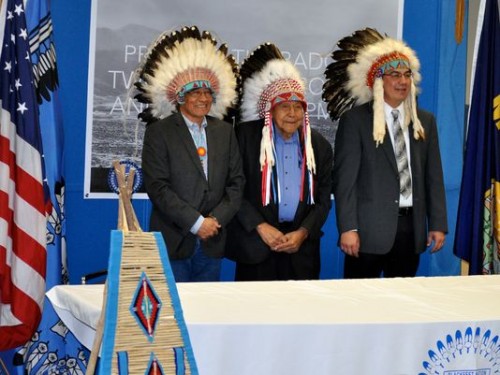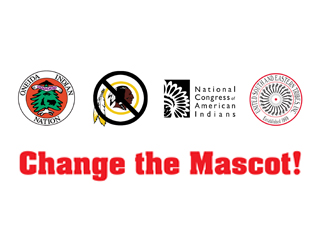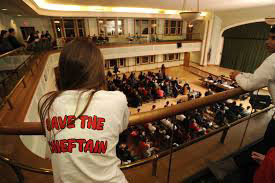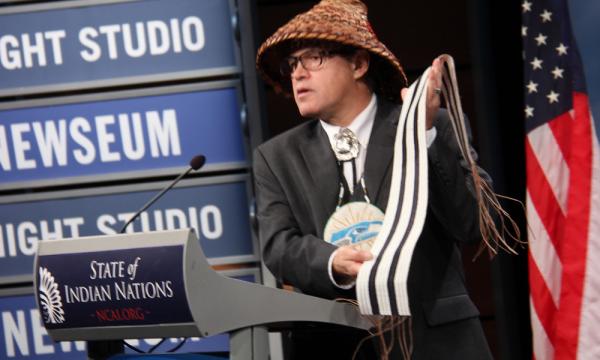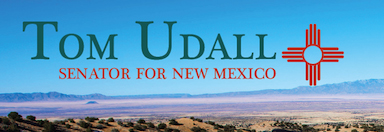
Commits to being ‘a strong voice and advocate for all Tribes’ as vice chair of Senate Indian Affairs Committee
Source: Tom Udall Press Office
WASHINGTON — Today, U.S. Senator Tom Udall, vice chairman of the Senate Committee on Indian Affairs, addressed the National Congress of American Indians at its 2017 Executive Council Winter Session and Legislative Summit. In his speech, Udall outlined the priorities for the Senate Committee on Indian Affairs and his commitment to working on issues important to Indian Country – including improving health care and education, cultural preservation, economic development, infrastructure and public safety, Tribal consultation, and the Dakota Access Pipeline – while respecting Tribal sovereignty, holding the government to its trust and treaty responsibilities, and fighting for federal funds for Native communities.
“I now serve as vice chair of the Indian Affairs Committee in the Senate with great humility,” Udall said in his address. “I commit to being a strong voice and advocate for all Tribes, and to make sure that the federal government stands by its trust and treaty obligations, and that Tribal sovereignty is respected.”
Udall denounced President Trump’s callous move to advance the Dakota Access Pipeline without consulting with Tribes or addressing the deep concerns of peaceful demonstrators and people across Indian Country. “Right out of the gate, the president has given you reason to doubt that Tribal sovereignty, lands, and resources will be respected in the new administration. I am very disappointed in the president’s decision to grant the easement to complete construction of the pipeline without first consulting with the Tribe. It is deeply disrespectful,” Udall said. Last week, Udall said that President Trump should make good on the federal government’s promise to engage in meaningful consultation with Tribes affected by the Dakota Access Pipeline.
“Let me be clear,” Udall said in his speech. “I stand with Standing Rock.”
Udall also committed to using his position on the Indian Affairs Committee, and as the lead Democrat on the Interior Appropriations Subcommittee, to fight for federal funding for Tribes. “I can promise you this: no one will fight harder to make sure that Tribal programs get the resources they need,” Udall said.
Udall spoke about the need for Congress to promote economic development and create jobs in Tribal economies. “I want to do all I can to support entrepreneurs in Indian Country, to help cut through red tape and get access to start-up funding. I hope that we can continue to work on a bipartisan basis to grow jobs in Indian Country,” Udall said.
“I am firmly committed to preservation of Tribes’ cultures and heritages. Your traditions, your languages, practices and beliefs must be strengthened and carried on by future generations,” Udall continued, noting that he chaired an Indian Affairs Committee field hearing last October to discuss the steps that should be taken to prevent the illegal sale and transfer of sacred cultural items.
Udall also vowed to fight to protect the health care of Native Americans from the disastrous effects of the Republican effort to repeal the Affordable Care Act (ACA). Indian Country would be particularly hard hit if Congress repealed an expansion of Medicaid, a key provision of the ACA, which has helped make up for severe under-funding of the Indian Health Service. “With ACA repeal looming, I have prepared legislation to protect Indian Health Services. And I will fight any cuts in federal funding to Tribes if the ACA is repealed,” Udall said.
Finally, Udall said that he has urged Trump’s nominee for Interior Secretary, Congressman Ryan Zinke, to be a strong advocate for Native Americans if he is confirmed, and to help the president understand the need for Tribal self-determination and consultation on any issue affecting Tribal lands and cultures. In particular, Udall said he believes Trump should continue holding the annual Tribal Nations Conference, which began under President Obama.
“It’s an opportunity for all Tribes to attend, and to hear from the president and executive agencies about what they have done the past year and what they intend to do the next. It’s been one way to hold the executive accountable,” Udall said. “I hope the new president continues to hold and attend the annual Tribal Nations Conference, and that he maintains the White House Native American Council – so that Native issues are systematically given cabinet-level attention and consideration.”
The full text of Udall’s remarks as prepared for delivery is below.
“Thank you, President Cladoosby.
“The National Congress of American Indians is the oldest, largest, and most representative inter-Tribal organization in our nation. It provides valuable leadership within Indian Country and across the nation. I am honored to be here with you today.
“I have had the privilege of representing Tribes at the state and federal level for more than 25 years now.
“My home state of New Mexico has 19 Pueblos, three Apache Tribes, and the Navajo Nation. And New Mexico Pueblos have strong ties to the Ysleta Del Sur Pueblo of Texas – who are originally from New Mexico and share the unique Puebloan culture. In New Mexico, 10 percent of our population is Native American. Nationally, we have 567 federally-recognized tribes. And millions of Americans descended from our country’s original inhabitants.
“Over time, I have been able to visit your communities, get to know your leaders, and work on issues important to you. I have seen the dignity in your spirit, your hard work on behalf of your people, and your fierce dedication to preserving your languages, cultures, and sovereignty.
“And so I now serve as vice chair of the Indian Affairs Committee in the Senate with great humility. I commit to being a strong voice and advocate for all Tribes, and to make sure that the federal government stands by its trust and treaty obligations, and that Tribal sovereignty is respected.
“Right out of the gate, the president has given you reason to doubt that Tribal sovereignty, lands, and resources will be respected in the new administration. I am very disappointed in the president’s decision to grant the easement to complete construction of the Dakota Access Pipeline without first consulting with the Tribe. It is deeply disrespectful.
“Let me be clear: I stand with Standing Rock. Determined men, women, children from Tribes all across the country made their voices heard. We saw the hundreds of tents laid out across the white snow. And, we saw the water cannons sprayed on water protectors in freezing temperatures.
“Across the country and the globe, people rose in opposition to the pipeline, and urged that Native American sacred sites be protected — that drinking water for Tribal communities be protected.
“The threat of the pipeline galvanized a social justice movement within Native American communities across the nation, especially Native American youth. They are empowered, ready to take up the mantle. This momentum will not be lost. It will continue.
“The Dakota Access Pipeline was not a zero-sum game. The new administration could have figured out a way to respect Tribal resources and go forward with the pipeline. I believe the president chose short-term political gains and corporate profits over respect for Tribal rights and values. And he missed an opportunity to show genuine leadership.
“In the wake of Standing Rock, federal agencies under President Obama’s administration held formal consultations with Tribes on infrastructure decision making all around the country. I was pleased to speak at one of the consultations, in Albuquerque. High level officials from across the federal government attended, including from the departments of the Interior, Justice, the Army, Agriculture, and Energy.
“Tribal consultation must be substantive and meaningful. It is not just a check box of the process. This is a fundamental principle of government-to-government relationships.
“I hope the work of that nationwide, multi-agency effort is not lost, and that the recommendations laid out in the January report are taken seriously by this administration.
“I will push to ensure that federal agencies seek Tribal input and work to integrate Tribal concerns into planning for infrastructure projects in the future, and to decide whether the Indian Affairs Committee needs to take oversight action.
“As you all know, the Senate Indian Affairs Committee has a broad jurisdiction. We look at just about any important issue relating to American Indians, Alaska Natives, and Native Hawaiians.
“Traditionally, Congress has taken a bipartisan approach to Native issues. Native issues should not be red or blue. I want to continue the tradition of bipartisanship to the greatest extent possible, in order to produce the best results for Tribes.
“I will fight hard to protect all existing funding for Tribes, using my seat on the Indian Affairs Committee and my position as the lead Democrat on the Interior Appropriations Subcommittee. This is a time of great uncertainty about the Federal budget. Congress still needs to pass a budget for the rest of this year. And we don’t know what to expect on Tribal funding from the new president or the majority in Congress.
“But I can promise you this: no one will fight harder to make sure that Tribal programs get the resources they need.
“On the campaign trail, President Trump promised he would begin a $1 trillion infrastructure program. I hope this might be an area where we can work together. If so, we must use this opportunity to make investments and create jobs in Indian Country
“That’s why I have been working with Senator Schumer and other members of the Democratic Caucus to put together our proposal for a trillion dollar program. That program targets $20 billion over five years for projects on Tribal and public lands.
“I know that many Tribes are working hard to provide basic infrastructure. The U.S. Energy Information Administration estimates that 14 percent of households on Native American reservations do not have electricity — 10 times higher than the national average. More than 13 percent of Natives don’t have reliable access to water. On the Hopi and Navajo reservations, it’s 40 percent. According to a 2015 report from the Federal Communications Commission, 85 percent of rural Tribal members don’t have access to effective broadband, compared to 13 percent of all U.S. households.
“We must address these very basic needs. Everyone should have access to electricity and running water. And broadband is essential to economic development, education, and health care.
“Our Tribal lands need improvements to roads bridges, and waterways, investments in schools, medical facilities, and community centers. And we need to invest in energy – especially in renewable energy sources that that respect Tribal lands and resources.
“It is too soon to know what the president’s massive infrastructure program will look like, or whether we will even have one. But I am committed to working across the aisle on Tribal infrastructure, and to sorting out priorities, so we make wise investments that help sustain your communities for the future.
“The committee also needs to work on measures that will help fuel Tribal economies and produce jobs. Last session, I joined my committee colleagues from both sides of the aisle to cosponsor the Native American Business Incubators Program Act to help launch Native American-owned small businesses. Small businesses create jobs and opportunity and empower people to shape their own future. I want to do all I can to support entrepreneurs in Indian Country, to help cut through red tape and get access to start-up funding. I hope that we can continue to work on a bipartisan basis to grow jobs in Indian Country.
“I am firmly committed to preservation of Tribes’ cultures and heritages. Your traditions, your languages, practices and beliefs must be strengthened and carried on by future generations.
“Last week, the Indian Affairs Committee voted S. 254 out of committee. That bill extends the Esther Martinez Native American Language Preservation grant program through 2022. It also makes commonsense changes to the program’s grantee requirements section – changes we put in based on direct input from Tribes. Esther Martinez grants have supported Tribal innovation in Native language programs efforts for many years.
“I am optimistic we will be able to get S. 254 out of the Senate, on to the House, and signed into law this year.
“I want to make sure the new administration continues to strongly and aggressively enforce the Native American Graves Protection and Repatriation Act. Last October, in Albuquerque, I chaired an Indian Affairs Committee field hearing to discuss steps that should be taken to close loopholes in the existing law, push federal agencies to enforce the laws, and ensure Tribes play an active part in preventing the illegal sale and transfer of cultural items.
“Native Americans have been the victims of theft and looting for generations. I was pleased Acoma Pueblo was able to stop the sale of their shield when it was put up for sale in a Paris auction house. Now, it must be repatriated. We must do more to stop illegal seizure and sales of your sacred objects. I intend to do all I can to make sure the new administration is a strong enforcer of laws that protect cultural patrimony.
“I am particularly concerned about the proposal by the president and Republicans in Congress to repeal the Affordable Care Act. They have no concrete plan to replace the ACA. I am strongly opposed to repeal without a replacement that makes sure no one loses their current coverage and benefits.
“Native Americans are eligible to receive care through the Indian Health Service. But we all know that IHS has been severely underfunded, that long delays for basic and specialized services are common.
“Tribal members have benefitted from Medicaid expansion under the ACA by being able to access needed services, and so have IHS hospitals through third-party collections. While current federal funding covers less than half their operational costs, increases from Medicaid expansion under the ACA have helped offset those costs.
“But without Medicaid expansion revenue, necessary services that many are receiving now may no longer be available throughout Indian County. This would be unconscionable.
“With ACA repeal looming, I have prepared legislation to protect Indian Health Services. And I will fight any cuts in federal funding to Tribes if the ACA is repealed.
“Now, the ACA is by no means perfect. But it has helped millions of Americans secure health care coverage for the first time. So we should be working together, on a bipartisan basis, to ensure this progress is not lost.
“And while it may seem that ACA repeal is on the back burner with all the other shenanigans going on, I assure you it is not. If you do not want to see the ACA and its key Tribal provisions repealed, I encourage you to keep the pressure on your Congressional members.
“I met with the president’s nominee for Secretary of the Department of the Interior, Congressman Ryan Zinke. This was before the administration’s actions on the Dakota Access Pipeline. During that meeting, I emphasized the need for him to be a strong advocate for Native Americans, if he is confirmed. He assured me that is his intent.
“I asked him to help President Trump understand the need for Tribal self-determination and consultation on any issue affecting Tribal lands and cultures. There is apparently a steep learning curve there.
“If Congressman Zinke is confirmed, I want to work with him to make sure Tribal sovereignty, treaty rights, and interests are fully respected, and that Tribes can always have their voices heard.
“In his first year in office, President Obama started the Tribal Nations Conference. And he held the conference every year since. It’s an opportunity for all Tribes to attend, and to hear from the president and executive agencies about what they have done the past year and what they intend to do the next. It’s been one way to hold the executive accountable.
“I hope the new president continues to hold and attend the annual Tribal Nations Conference, and that he maintains the White House Native American Council – so that Native issues are systematically given cabinet-level attention and consideration.
“I would like to conclude by affirming that, now more than ever, it’s important that we all remain engaged in the political process – at the Tribal, local, state, and national levels.
“I know all of you here are engaged — that you work hard every day for your communities, your nations, and for our country. I thank you for your work. And I look forward to continuing our work together.”
